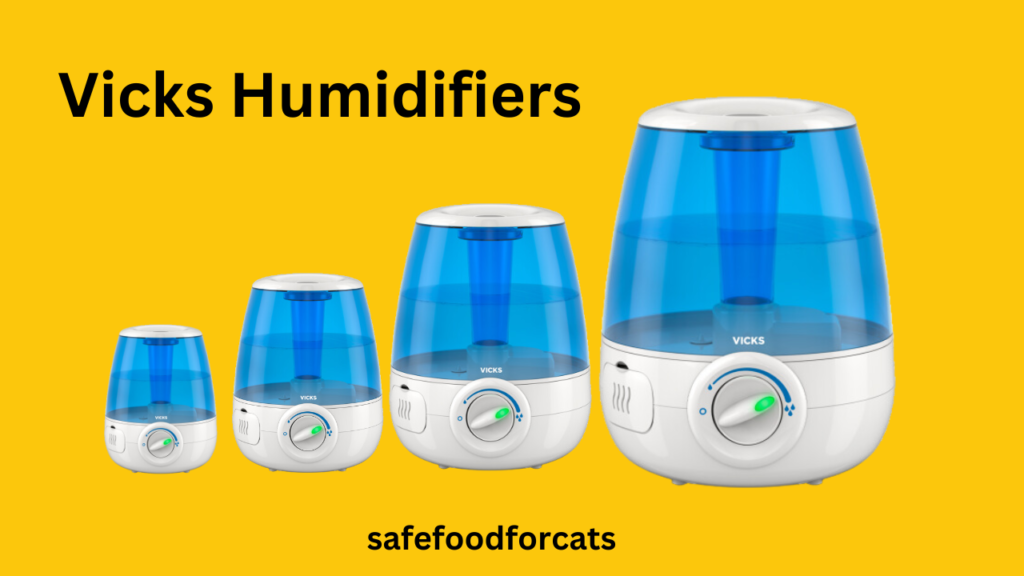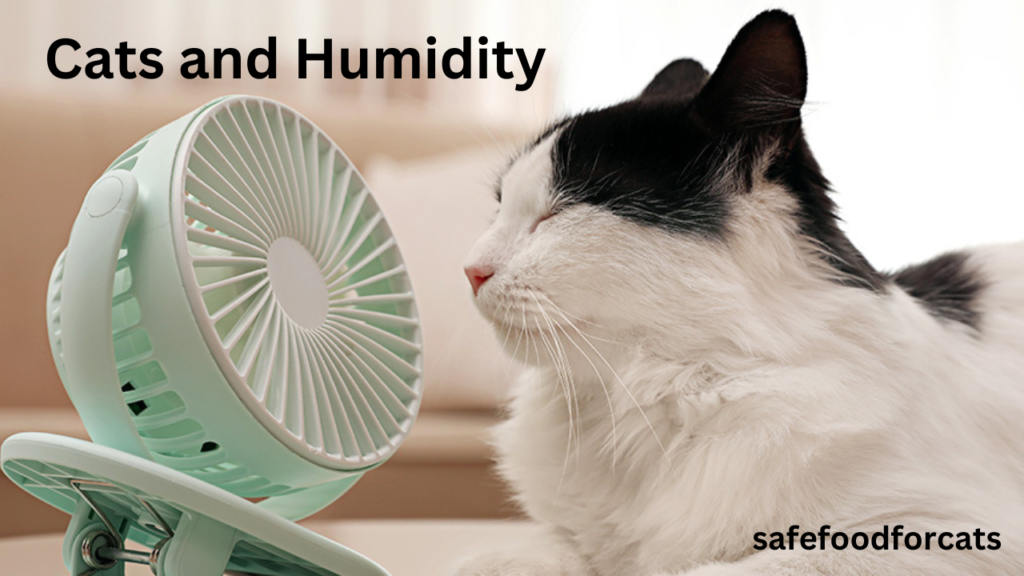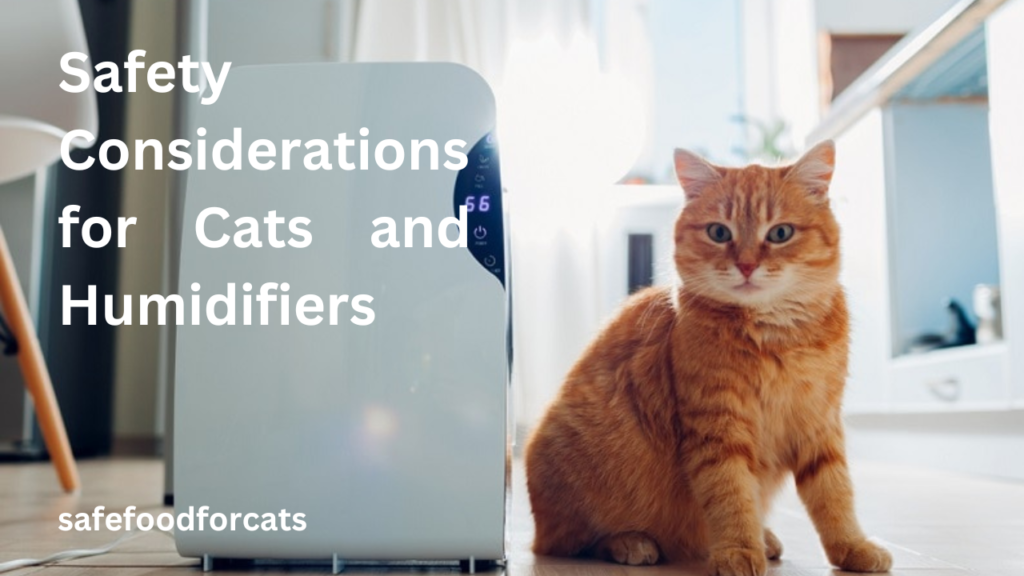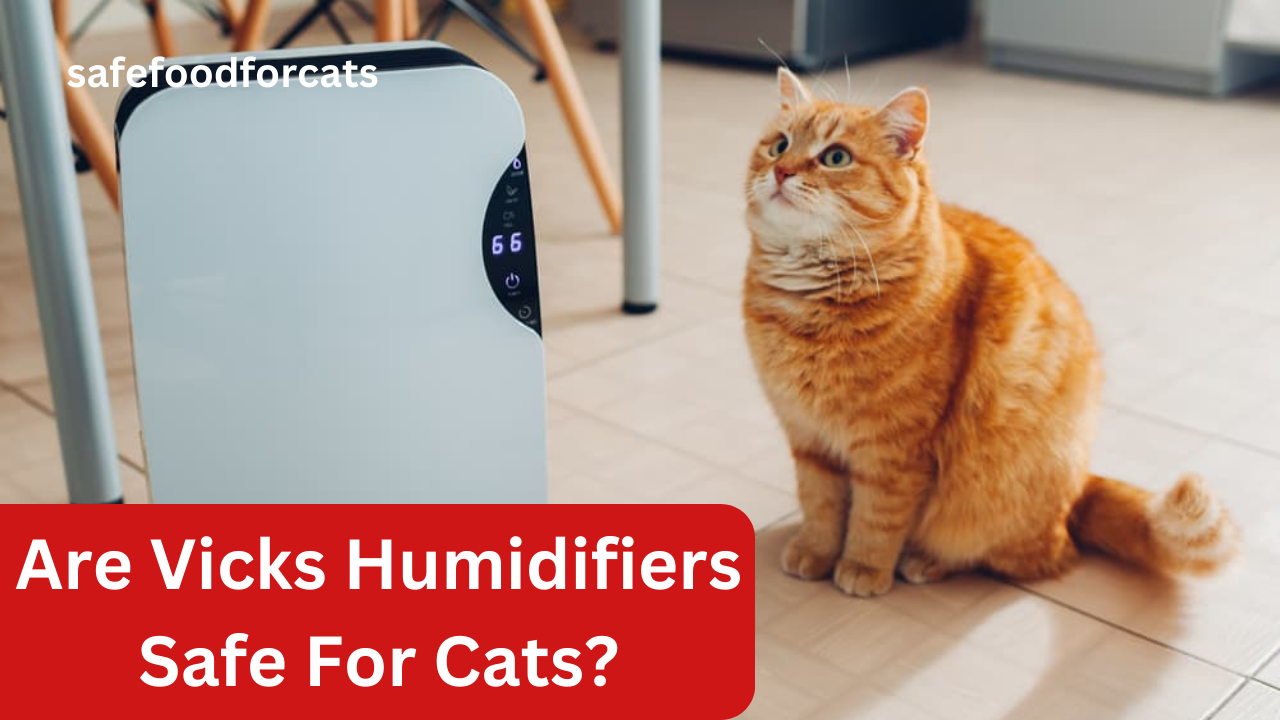You love your furry feline companion, but did you know that certain household items could potentially harm them? One such item that may raise concerns is a Vicks humidifier. As a responsible cat owner, it’s important to ensure the safety of your beloved pet. In this article, we will explore whether Vicks humidifiers are safe for cats, providing you with the information you need to keep your feline friend happy and healthy.
Understanding Vicks Humidifiers
What are Vicks Humidifiers?
Vicks Humidifiers are devices designed to increase the moisture levels in the air of a room. They are particularly useful in dry climates or during the winter months when the air tends to be drier. Vicks Humidifiers are known for their effectiveness in relieving congestion, cough, and dryness of the throat by adding moisture to the air you breathe.
How do Vicks Humidifiers work?
Vicks Humidifiers work by releasing cool mist or warm mist into the air, depending on the model. The cool mist humidifiers use a wick or filter to absorb water from the tank and a fan to blow air across the wet wick, creating a fine mist that is then released into the room. Warm mist humidifiers, on the other hand, heat the water before dispersing it into the air, providing a warm and soothing mist.
Benefits of Vicks Humidifiers
Vicks Humidifiers offer several benefits for both humans and pets. They can help alleviate cold and flu symptoms by moisturizing the nasal passages and throat, easing congestion and coughing. Additionally, the added moisture in the air can help relieve dry skin, and irritated eyes, and even reduce snoring. By maintaining optimal humidity levels, Vicks Humidifiers also help create a more comfortable and pleasant living environment.
Different types of Vicks Humidifiers
Vicks Humidifiers come in various models to suit individual needs and preferences. They offer cool mist options that use ultrasonic technology, evaporative humidifiers that utilize a wicking filter, and warm mist options that provide a cozy environment. Additionally, Vicks Humidifiers come in different sizes and capacities, allowing you to choose the one that best fits your room size.

Cats and Humidity
Why do cats need proper humidity levels?
Cats are highly sensitive creatures, and maintaining proper humidity levels is crucial for their well-being. Cats have delicate respiratory systems that can be affected by both dry and overly humid air. Proper humidity levels are essential for keeping their respiratory passages moist and preventing irritation. Additionally, cats rely on their sense of smell, which can be negatively impacted by overly dry or humid air.
The risks of low humidity for cats
Low humidity levels can have adverse effects on cats’ health. Dry air can lead to dehydration, irritated skin, respiratory issues, and even dry eyes. Cats may experience discomfort, itchiness, and excessive shedding due to the lack of moisture in the air. Additionally, low humidity can exacerbate respiratory conditions such as asthma and allergies in cats, making it harder for them to breathe.
The risks of high humidity for cats
While low humidity can be problematic, high humidity can also pose risks to cats. Excessive moisture in the air can create an environment conducive to the growth of mold, bacteria, and dust mites, which can trigger allergies and respiratory problems in cats. High humidity can also make it harder for cats to regulate their body temperature, leading to discomfort and heat-related issues.

Safety Considerations for Cats and Humidifiers
Potential dangers of using humidifiers around cats
While humidifiers offer numerous benefits, it is essential to consider the potential dangers they may pose to cats. When using humidifiers, particularly ones that release cool mist, it is vital to ensure that the area around the humidifier is not accessible to cats. Cats may be curious and inquisitive, and if they come in direct contact with the unit or its electrical components, it can lead to electrical shocks or injuries.
Can Vicks Humidifiers harm cats?
Vicks Humidifiers, when used correctly and following the manufacturer’s instructions, are generally safe for cats. However, it is crucial to keep in mind the potential risks associated with any humidifier, such as the aforementioned electrical hazards. It is advisable to place the humidifier in an area inaccessible to cats or use safety measures like barriers or covers to prevent them from coming into contact with the device itself.
Does Vicks Humidifiers’ menthol smell affect cats?
Vicks Humidifiers are known for their distinct menthol scent, which can be soothing for humans. However, cats have a highly sensitive sense of smell, and strong scents can sometimes be overwhelming for them. While the menthol smell of Vicks Humidifiers is not typically harmful to cats, it is advisable to monitor your cat’s behavior and ensure they are not showing signs of discomfort or distress in the presence of the scent.
Cat behavior toward humidifiers
Cat behavior towards humidifiers can vary depending on the individual cat. Some cats may be curious and show interest in the mist or the device itself, while others may completely ignore it. It is important to observe your cat’s behavior and ensure that they do not attempt to play with or ingest any parts of the humidifier. If your cat displays excessive interest or appears bothered by the humidifier, it may be best to provide them with a separate area where they can retreat without the presence of the device.
What to consider before using a humidifier around cats
Before using a humidifier around cats, it is important to consider their safety and well-being. Take note of your cat’s behavior and any potential allergies or respiratory conditions they may have. Ensure the humidifier is placed in a location that is out of reach from cats and that the water tank is securely closed to prevent any spills or leaks. Regular cleaning and maintenance of the humidifier are also vital to prevent the growth of bacteria or mold that could harm both humans and cats.

Alternatives to Vicks Humidifiers
Humidifiers specifically designed for cats
To ensure the safety and comfort of your cat, you may consider using humidifiers specifically designed for cats. These humidifiers are equipped with features and functionalities that cater to cats’ unique needs. They often operate quietly to avoid unnecessary stress on cats and have built-in filters to prevent the release of harmful particles into the air. Research and choose a cat-specific humidifier that suits your cat’s requirements and your home environment.
Natural ways to increase humidity for cats
If you prefer to avoid using a humidifier altogether, there are natural ways to increase humidity for your cat. Placing a shallow bowl of water near a heat source, such as a radiator, can help increase moisture levels in the air. Regularly moistening your cat’s fur with a damp cloth or providing them with access to a bathroom with a running shower can also offer temporary relief from dryness. However, keep in mind that these natural methods may not offer the same level of control and consistency as a humidifier.

